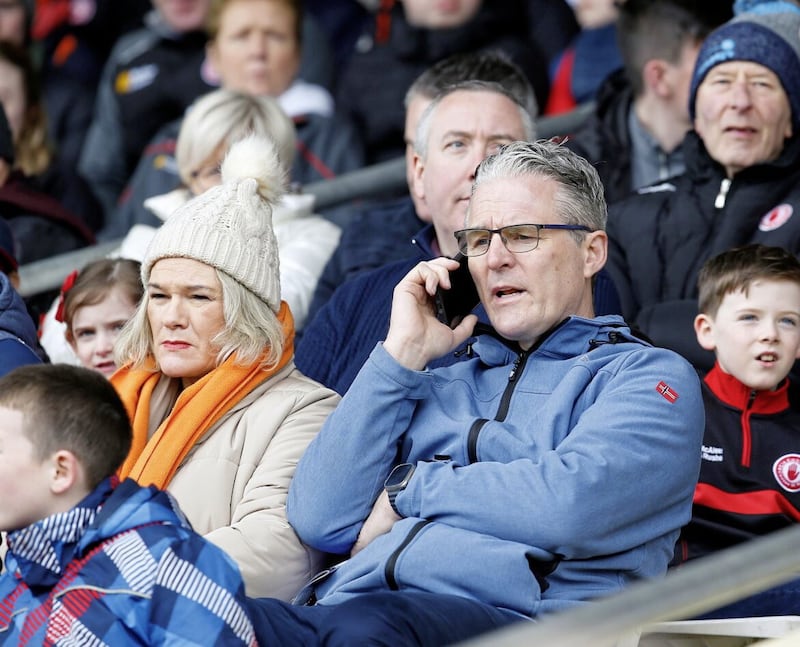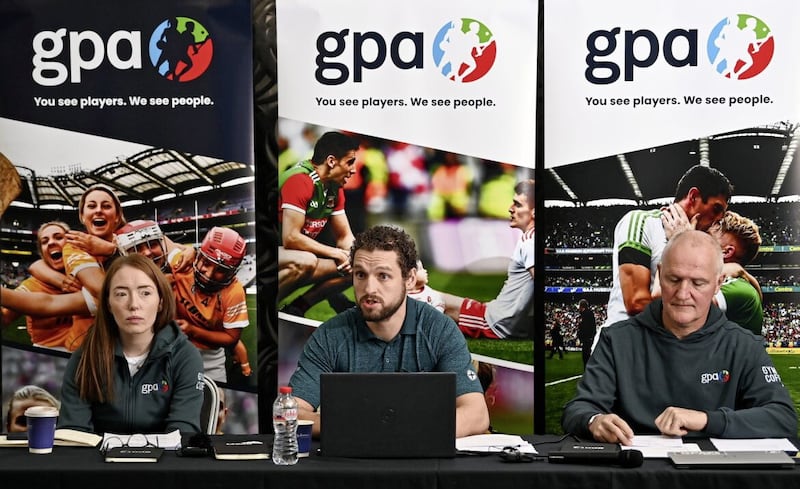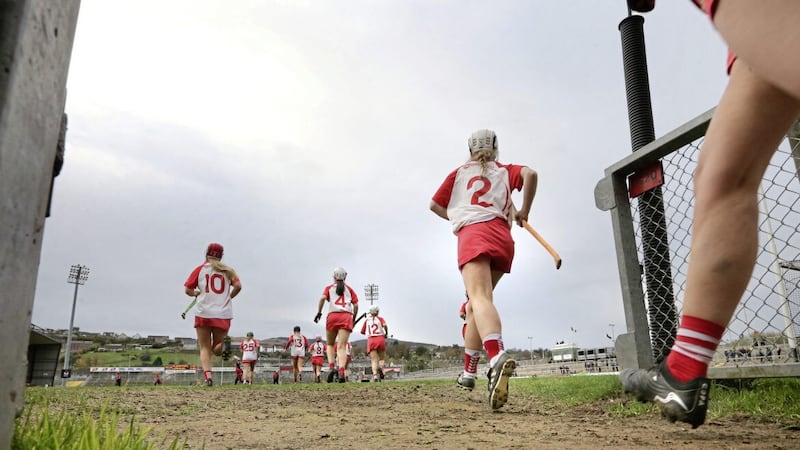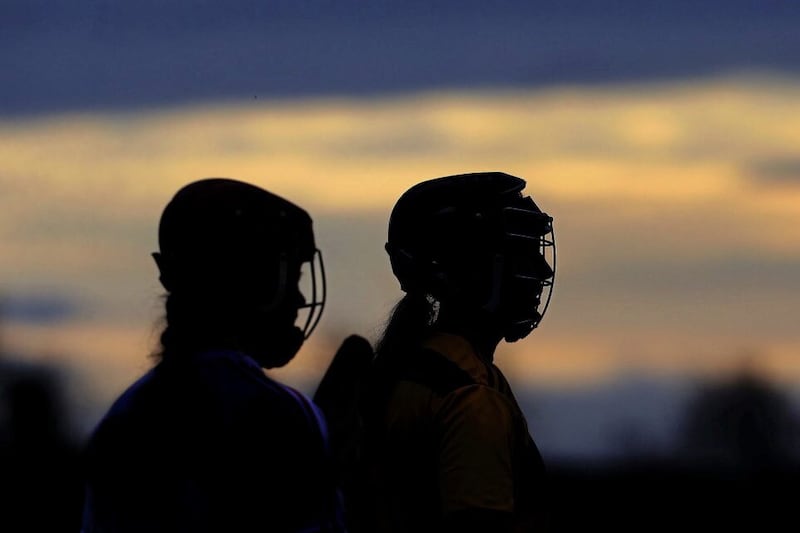In the canon of Gaelic games, Ulster GAA has a proud tradition and a reputation for progress and foresight in community relations. Both rest on a foundation, built over many years, in which relationships have been fostered and a space created for a more modern, inclusive multicultural Irish nationalism.
Not without challenges, it must be said, the Ulster Council has taken decisions that not only reflect changing social attitudes but that shape these too. The outreach work spearheaded by Danny Murphy and others has broken new ground.
GAA people in the other provinces can learn a lot from how the Ulster Council continues to demonstrate leadership, even if some northern counties felt they could not support the dropping of the historic ban on members of the security forces playing Gaelic games.
We are a complex group, ‘us’ living on this island, capable of holding complimentary and contradictory views, fraught with many emotions. We should not shy away from these. We should examine them; we can learn from our shared histories and leverage the opportunities of today.
None more so than integration, which is a potential turning point in the development of the Gaelic games family.
With a GAA President Elect from Ulster, there is a very real possibility that a new Gaelic games organisation could be established within the next five years. Decisions will be made that will benefit future generations and help them to realise their potential, not only on the pitches within men’s and women’s Gaelic codes but away from them too – in the clubhouses, county and provincial board meetings, refereeing and coaching courses, and in schools throughout the island.
If we get integration right, it will secure growth in Gaelic games and generate economic prosperity across society as a whole. Why? Because women will be included, equally.
The systems of work and the organisational structures of a new organisation can support male and female members across all units: players, administrators, coaches, leaders, and officials.
A funding model can, and must, prioritise investment in Gaelic games played by girls and women, at least in the short-term.
Clubs and counties will need dedicated financial support to realise integration, through additional or new funding streams.
A quota approach will be needed to ensure that Noreen Doherty (Donegal), Tracey Kennedy (Cork), Joan Henchy (New York) and Marie Therese Dockery (Europe GAA), are followed by other women into prominent positions at county boards and central Council.
Not as token women, without voting rights, but as leaders in their own right within the Gaelic games family. Given Sport Ireland’s requirement that female representation on the boards of national governing bodies in receipt of state funding must reach 40 per cent, these quotas will be monitored and evaluated biennially, as should be all equality targets. Women will not be equal however if the misconception is left unchallenged that they are ‘taking our jobs’, ‘our money’ or, worse still, ‘our pitches’ and ‘our coaching resource’.
No longer can the pejorative dismissal of women’s Gaelic games be disguised or accepted. Those coaches, development officers and other administrators who snub the condition to work with their counterparts in camogie and ladies Gaelic football will have to be held accountable.
The conditions for change are arguably positive in Ulster. Women are more visible in coaching and administrative roles. In some places around the province, the One Club model has gathered speed, organically. But women have had to work very hard to be taken seriously and given leadership opportunities beyond the typical division of labour given to women in sport. We now need GAA leadership programmes that promote the progression of women in administrative roles. These have already been offered by the Camogie and Ladies Gaelic Football Associations, tailored specifically for women. The future, however, will be One Association for All built on equality.
GAA President Elect, Jarlath Burns, will take the helm in 2024. He will inherit the work already underway by the Steering Group on Integration, formed this year on the back of the congress motions on integration that received almost unanimous support in 2022.

Many may not be aware that he led the 2006 Irish ladies’ team to victory in the one and only International Rules series that took place that year.
Played at the same time as the men’s series, Ireland won both tests, played in Breffni Park, Cavan, and Parnell Park, Dublin. The series was broadcast live on TG4 and Setanta Sports.
Ulster players from Armagh, Down and Cavan were to the fore in the squad. That same year, over 25,000 spectators attended the All-Ireland Ladies' final in which Cork defeated Armagh.
And, one year later, the 2007 Gaelic Games Integration Report highlighted the need to ‘prepare an integration package with clear guidelines and proposed structures for integration’.
Rule changes would also be needed, the report said and, through co-operation and goodwill, ‘the spirit of many of them’ could be introduced in the interim.
This week, an independent, expert-led Policy Brief was launched on Integration in Gaelic Games. It summarises the key findings from research conducted around the world on integration and mergers and it examines what has taken place in other sports, like golf in Ireland and New Zealand, UK Sport, cricket in Australia and in England and Wales.
It also outlines a roadmap that Europe GAA delegate, Tony Bass, called for at last year’s congress, as well as a mandate for action on leadership, funding, organisational culture, representation, and policy.
No comparisons exist, locally or internationally, that could be a model of best practice for such a multi-entity and multi-sport integration process.
Nor would it be appropriate to merely parachute in ideas and practices from elsewhere without considering the distinctive cultural contexts in and the various needs of the three Gaelic games associations. But, in the review of research, one message is abundantly clear.
When we ‘add women and stir’ - for instance through the creation of an operational axis for girls and women within the older, larger, and more influential organisation – issues of power, influence and control can be obscured. Why? Because even though women might be given opportunities in this new operational axis, they are less likely to want to avail of them in the context of real and perceived fears over loss of autonomy and identity, unchanging masculine-oriented structures, institutional norms, and daily work practices.
Inadvertently then, adding women to the status quo can shore up a dam of inequality further downstream.
The idea of integration in Gaelic games has been visited in different ways over the past 50 years or so. In 1971, the GAA was recommended by its members to enhance co-operation with the Camogie Association. 10 years later, a motion was passed at GAA Congress to recognise ladies’ football.
In 1992, the GAA established a committee to examine ways of working with both women’s associations and three years later the Camogie Association affiliated to the GAA.
In 1999, the Ladies Gaelic Football Association requested closer links with the GAA that would lead to an alliance, but not necessarily affiliation.
An Integration Taskforce was established in 2002 between the three associations. This involved ‘One County’ pilot schemes in eight counties. Down, Galway, Laois, Wexford, Limerick, Roscommon, Tipperary, and Tyrone each set up an integration committee.
In the 2007 Gaelic Games Integration Report the eight counties highlighted the need to ‘prepare an integration package with clear guidelines and proposed structures for integration’. Rule changes would also be needed, the report said and, through co-operation and goodwill, ‘the spirit of many of them’ could be introduced in the interim.
These rules changes were to include the creation of an Integration Officer, providing for non-voting representatives of Camogie and Ladies Football on county committees, giving power to county committees to appoint their own integration structures, and an integrated fixtures committee and schedule.
Similar changes were envisaged in the rules at provincial level and central council. Another 12 years passed before non-voting representatives of camogie and ladies football joined the GAA management committee, in 2019.
A year later, the Gaelic Players Association voted in 2020 to form one association for its members, based on equality.

One has to ask whether a legacy of inertia around integration and gender equality continues to cloud events today. Real, meaningful, and long-lasting cultural change has to underpin equality in Gaelic games. Bringing together our collective expertise, we the authors of the Policy Brief on Integration entrust it to all those who wish to understand the issues at stake when it comes to making Gaelic games a more equitable space.
The key questions to be considered by everyone in this process are (i) what integration makes possible and (ii) how can we ensure that a new organisation does not become a marriage of unequals further downstream.
Integration in Gaelic Games is co-authored by Conor Meyler, PhD researcher at Technological University of the Shannon (TUS), Dr Aoife Lane, TUS, and Dr Katie Liston, Ulster University.
The full Policy Brief can be accessed at https://pure.ulster.ac.uk/en/publications/integration-in-gaelic-games.
* Dr Katie Liston is a Senior Lecturer in Social Sciences of Sport at Ulster University




